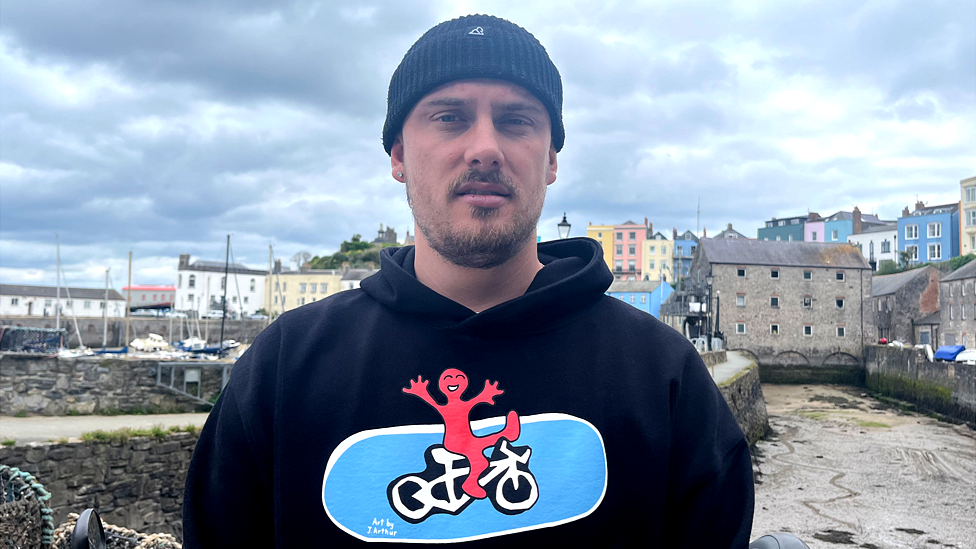Airbnb: Could 'ethical' rival preserve fading communities?
- Published
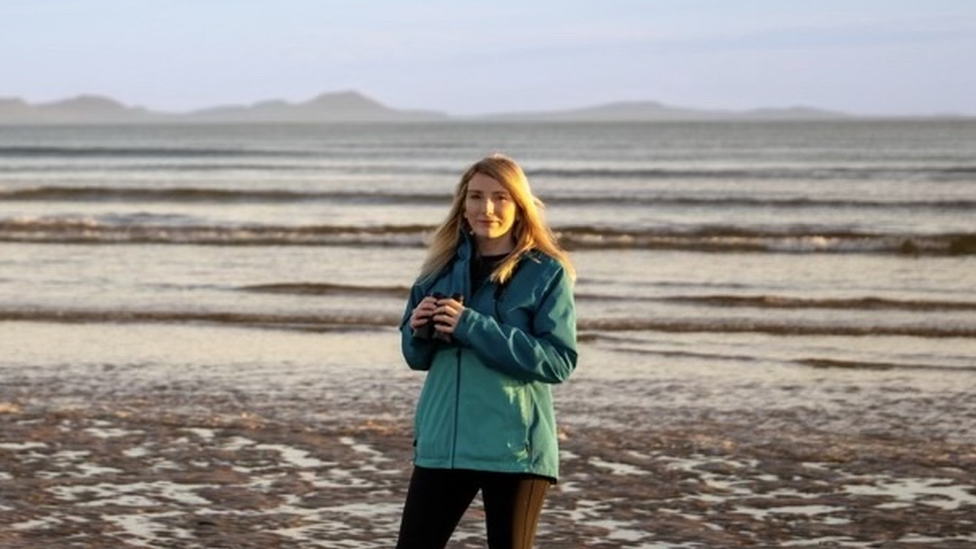
Dani Robertson said she thinks "sustainable tourism is absolutely the solution"
Dani Robertson's childhood home can count just two other sets of neighbours in a street of 37 houses as most, she says, are rented out on Airbnb.
The 33-year-old said her village of Rhosneigr, Anglesey, used to be a tight-knit Welsh-speaking community where neighbours were like family.
But she said it has been "hollowed out" by tourism and has called for sustainable solutions.
A rental cooperative which has launched in Wales is claiming it does just that.
Ms Robertson said she was "really fortunate" to have grown up in the village before the boom of holiday lets, but things had changed, with Welsh no longer heard and grocery shops becoming "eateries".
She said this was happening across the island.
Data from AirDNA showed there were 367 short-term rentals in Rhosneigr as of this month, while the Office for National Statistics said there were 4,375 holiday home users on Anglesey as a whole as of June.
Meanwhile, Anglesey council said there were 908 applications for social housing as of July.
The authority said tourism contributed £342m to its economy in 2021 and supported more than 3,600 jobs.
Anyone with a second home on the island must also pay a council tax rate of 150%, external.
Ms Robertson, who has now moved to nearby Aberffraw, said her home village will never recover as too many people have left.
She said she has also seen the same process in her new village.
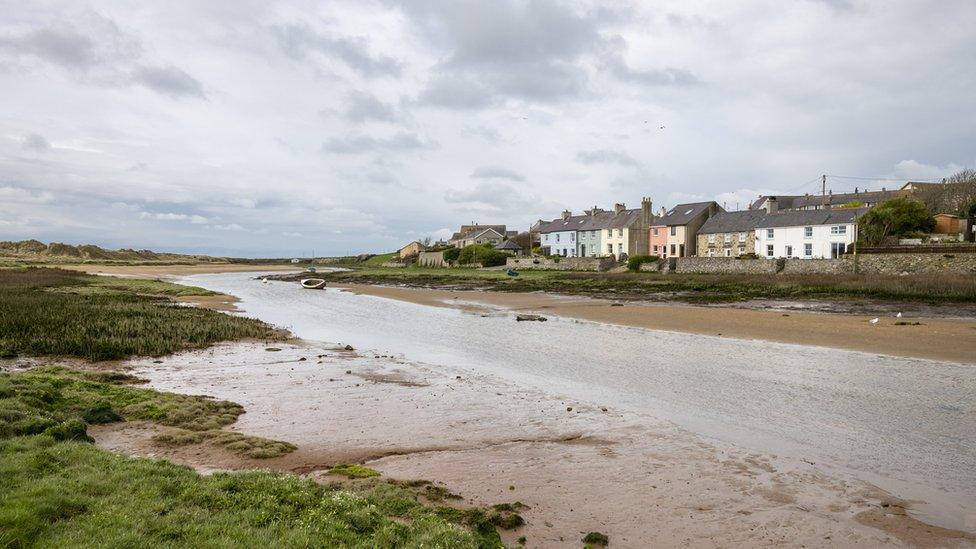
Aberffraw on Anglesey, is about 5 miles (8km) from where Dani Robertson grew up
"I can see history repeating itself, Aberffraw is Rhosneigr 15 years ago," adding the village had just lost its primary school and had no childcare provisions.
She said tourism was needed to "some extent" but could not continue as it was, adding: "Sustainable tourism is absolutely the solution. But I don't know how you get there, and I don't know how you force the hand of owners."
Anglesey is not unique in Wales or across the world.
In 2019, Emanuele Dal Carlo, from Venice, founded Fairbnb, a cooperative created to provide a sustainable alternative for holidaymakers in response to "over-tourism" in the Italian city.
In April it launched its first three stays in Wales.
Mr Dal Carlo said: "We wanted to find a better way, because tourism also creates a lot of collateral damage, especially to residents."
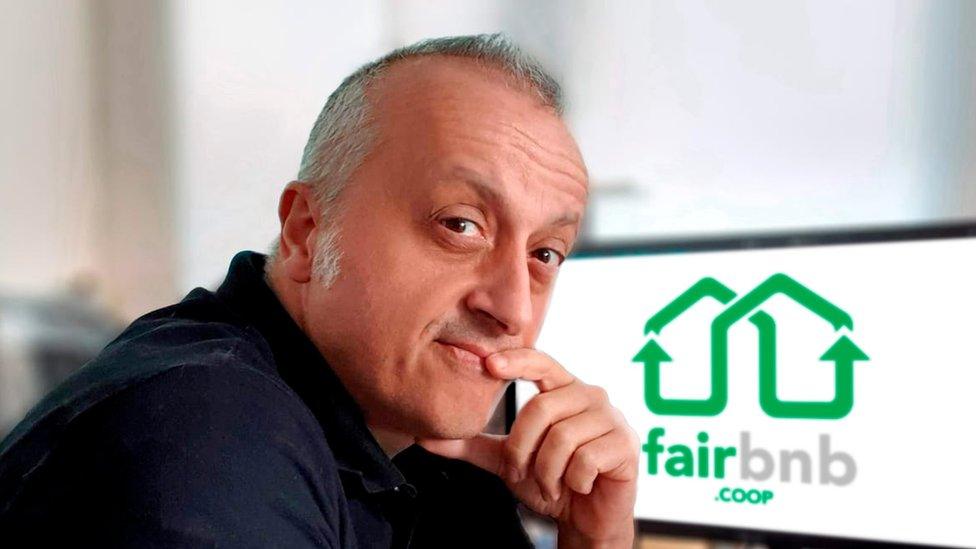
Emanuele Dal Carlo says people are welcome to come forward as ambassadors for their community
Fairbnb aims to have ambassadors who live in communities and can speak on behalf of residents.
Like most short-term rentals, it takes commission, but 50% goes into community projects. Hosts are also expected to live in the area and let only one property, with the community having a say if it is right for them.
Hosts are also verified with the local authority and a network of residents.
There are 2,150 active hosts across Italy, France, Spain, Portugal, Belgium and the UK.
One of those is Rachel Shiamh, who built her straw bale off-grid eco-home in St Dogmaels, Pembrokeshire, 20 years ago.
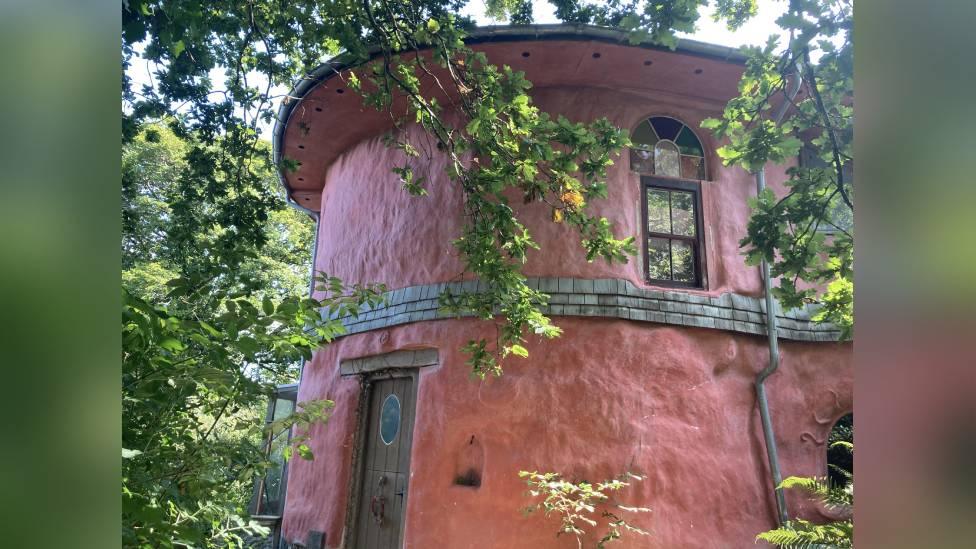
Ms Shiamh said the original land the house is built on is an ancient site and has a ruin
She said she shared her off-grid home with her guests to "show what's possible in terms of off-grid living".
"It's not about creating more and more businesses and holiday lets, which is quite an issue in our area at the moment now," she said. "It's making it more and more difficult for local people to find places to rent or to buy.
"I couldn't offer it to locals to live in as I also need to be here.
"We need tourism here. We need visitors, and it also keeps a wider mind view of life as well."
Half of her commission from Fairbnb goes to the national Big Issue project, which has branches in nearby Cardigan, Ceredigion.
Hosts can support up to three projects and she said she would support more "as they come up".
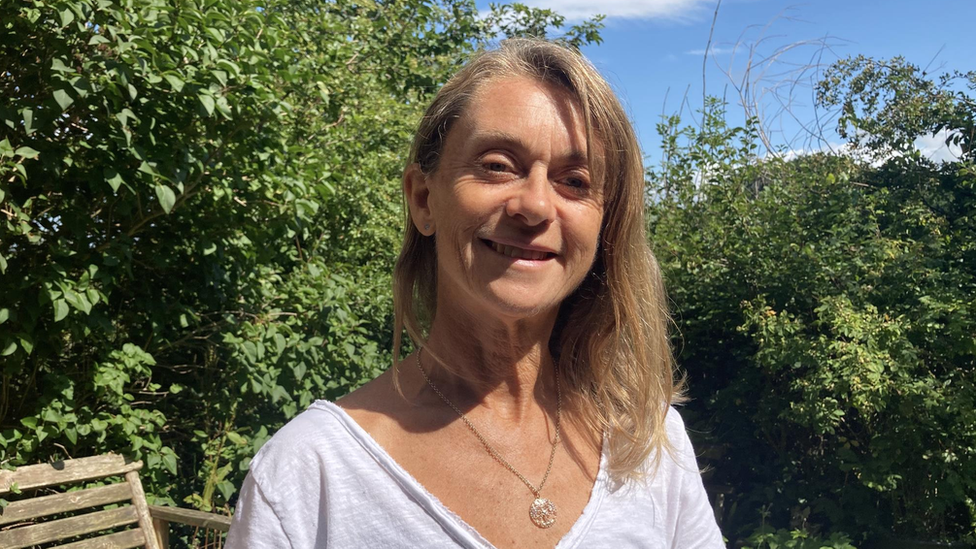
Rachel Shiamh says tourism is important to keep a "wider mind view of life"
Hostel Llety Arall in Caernarfon, Gwynedd, was also launched on Fairbnb in April. Menna Machreth, of the Other Accommodation initiative behind the hostel, said residents sometimes felt tourism "negatively impacts our area", but they wanted people to visit.
She said the group was aware of "people buying houses for them to be placed on Airbnb and that not being regulated at all" while "local people struggle to buy houses".
She added the hostel, which sits in a "renovated and empty large building" on a busy street in the town was a "community benefit society" which was not taking away homes.
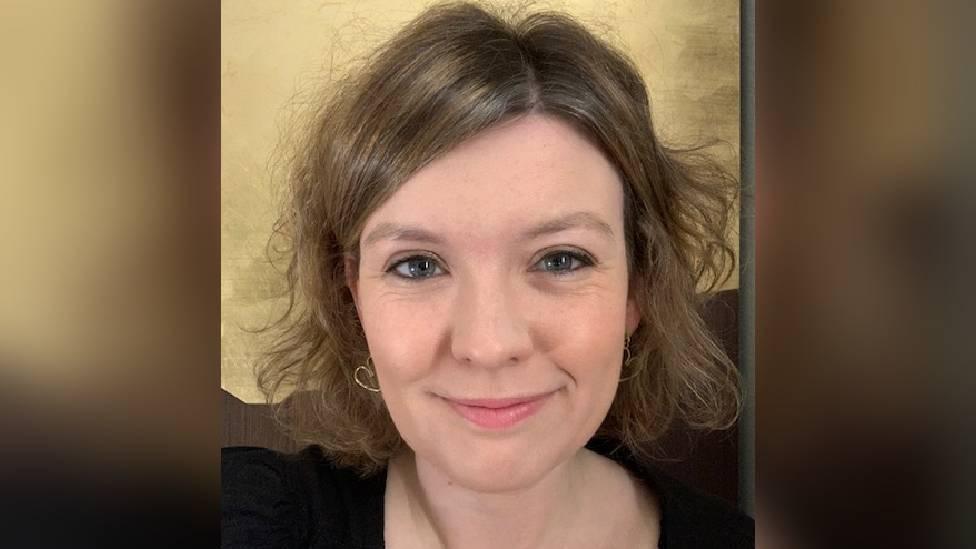
Menna Machreth says when they renovated the property they re-used or put materials on freecycle to reduce the impact
"Where there were offices and an empty shop, there are now eight rooms for short-term visitors, a thriving shop selling upcycled products and a space for community activities," she said.
"This is in contrast to what is happening in many communities in Gwynedd, with homes being bought to be holiday lets, denying people from a home and leading to prices skyrocketing out of reach of young people.
"The aim of the business is to benefit the town, by supporting the circular economy and promoting sustainable tourism," she said.
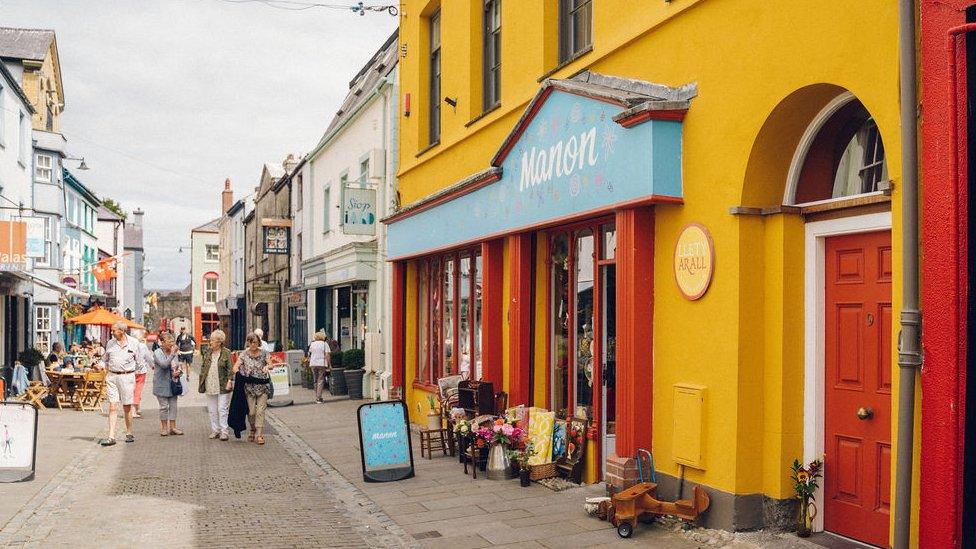
The group behind Llety Arall aim to show off the real Caernarfon
Llety Arall wants to join up with other social enterprises to find a community project that can benefit from its Fairbnb commission. "We've got nearly 90% of people in town speaking Welsh day-to-day," Ms Machreth said.
The purpose of the hostel was to give people the "experience of the Welsh language as a living, urban language".
But at the moment, no community projects have been found to put the 50% of commission into, so it goes to Big Issue instead.
Rebecca Wiles, UK ambassador for Fairbnb said its next step was to find local projects "to keep the benefit" of tourism in communities.
She said community projects were welcome to put themselves forward.
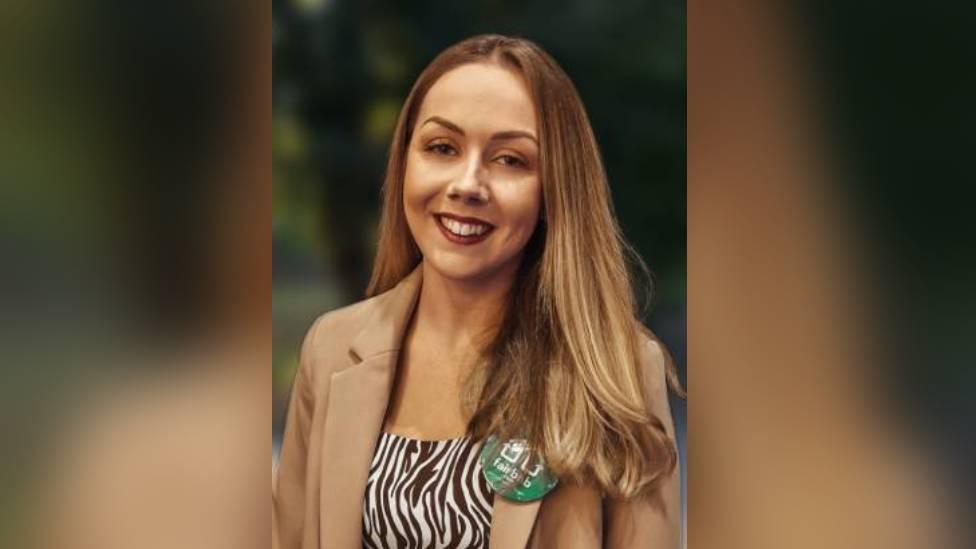
Rebecca Wiles is the UK ambassador for Fairbnb but the co-operative is looking for more local representatives
The organisation's definition of sustainability is broad, "not just focusing on do they plant trees and focus on the environmental aspects," she added.
"Whether that's domestic abuse charities or women's rights, animal welfare or health of rivers."
Community projects in other countries include village shops, not-for-profits targeting homelessness, and insect protection amongst many others.
Airbnb said in a statement that across Wales, the typical host shares one home, often their primary residence, for less than three nights a month.
It added that more than a third say this helps them afford rising mortgage, food and energy costs.
"Airbnb supports new rules and continues to work with the Welsh government to help local authorities to protect everyday families sharing space in their homes, and clamp down on the speculators driving housing and over-tourism concerns," the company said.


- Published20 June 2023
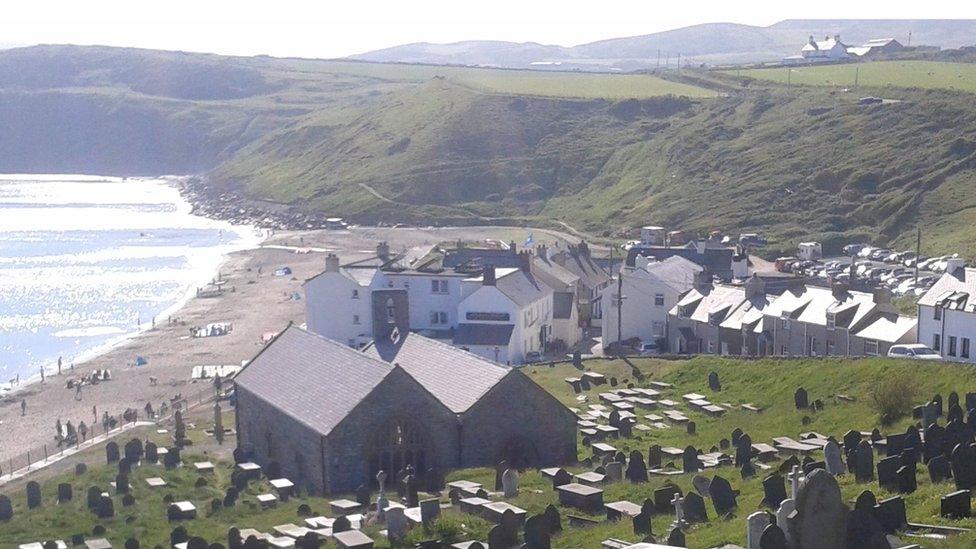
- Published20 September 2022
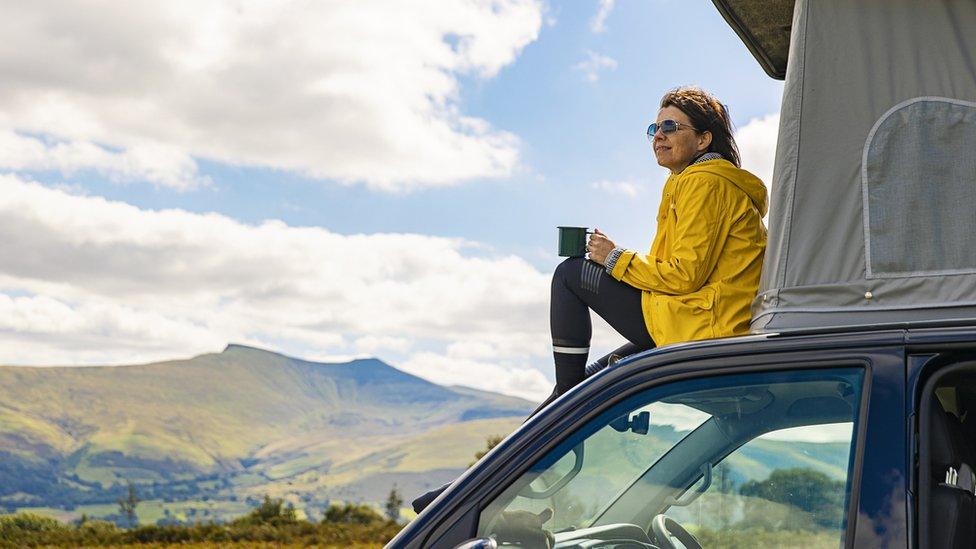
- Published17 June 2022
